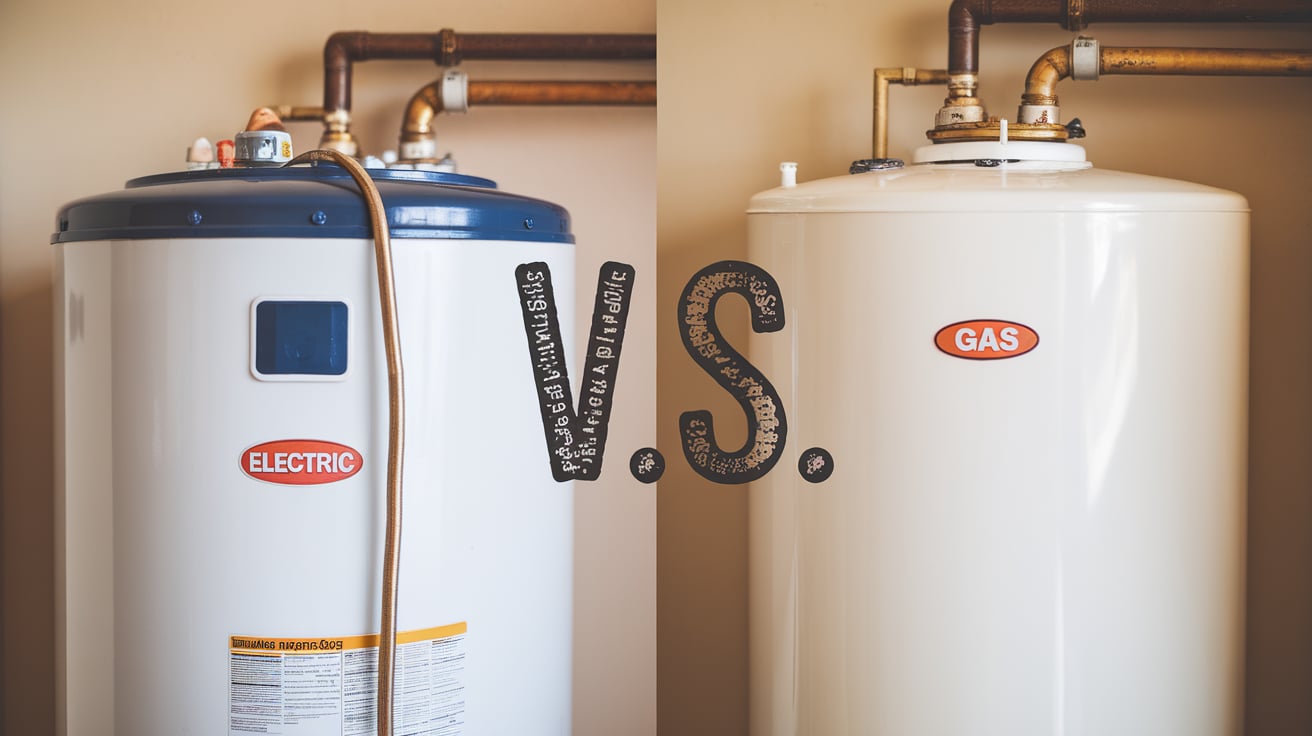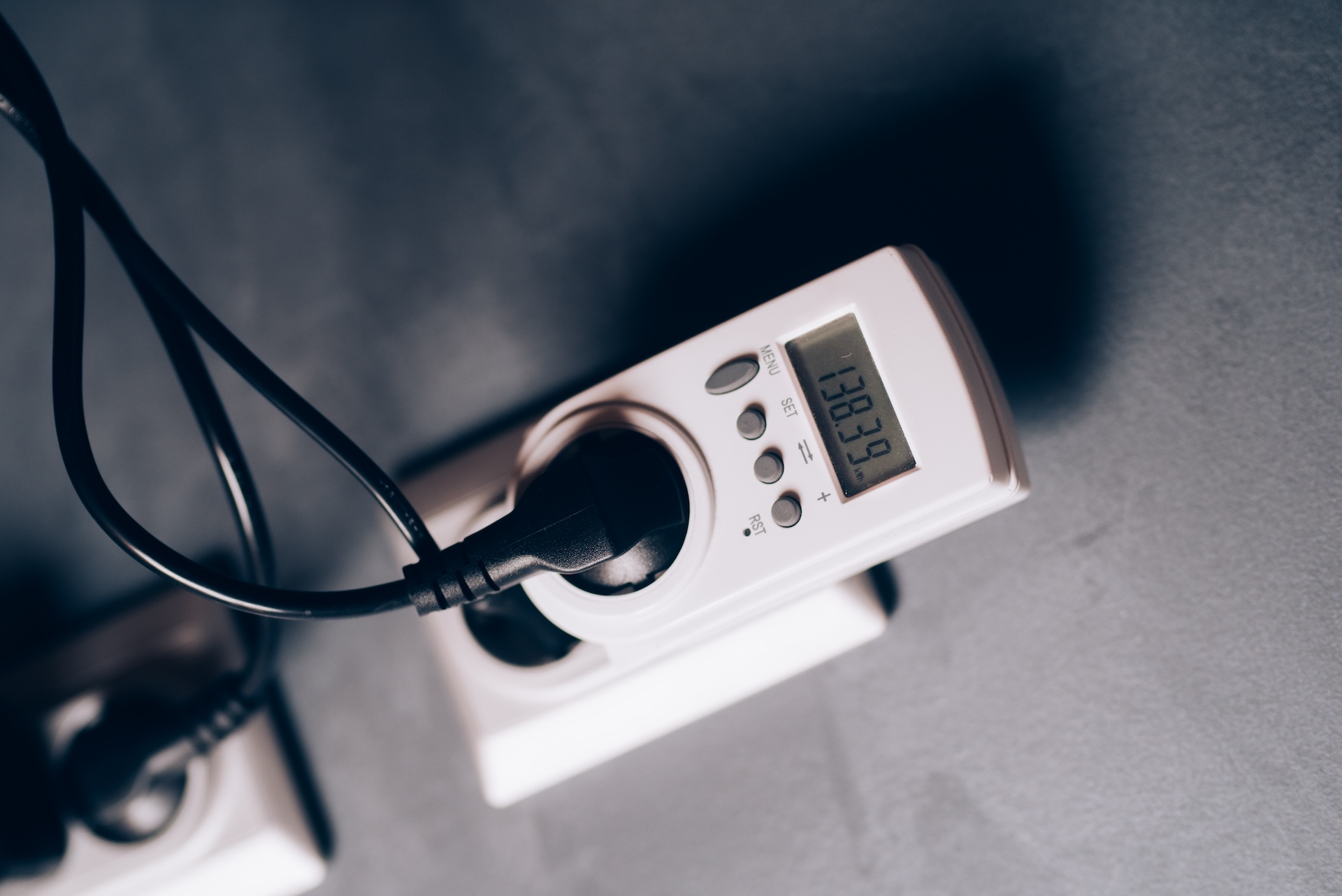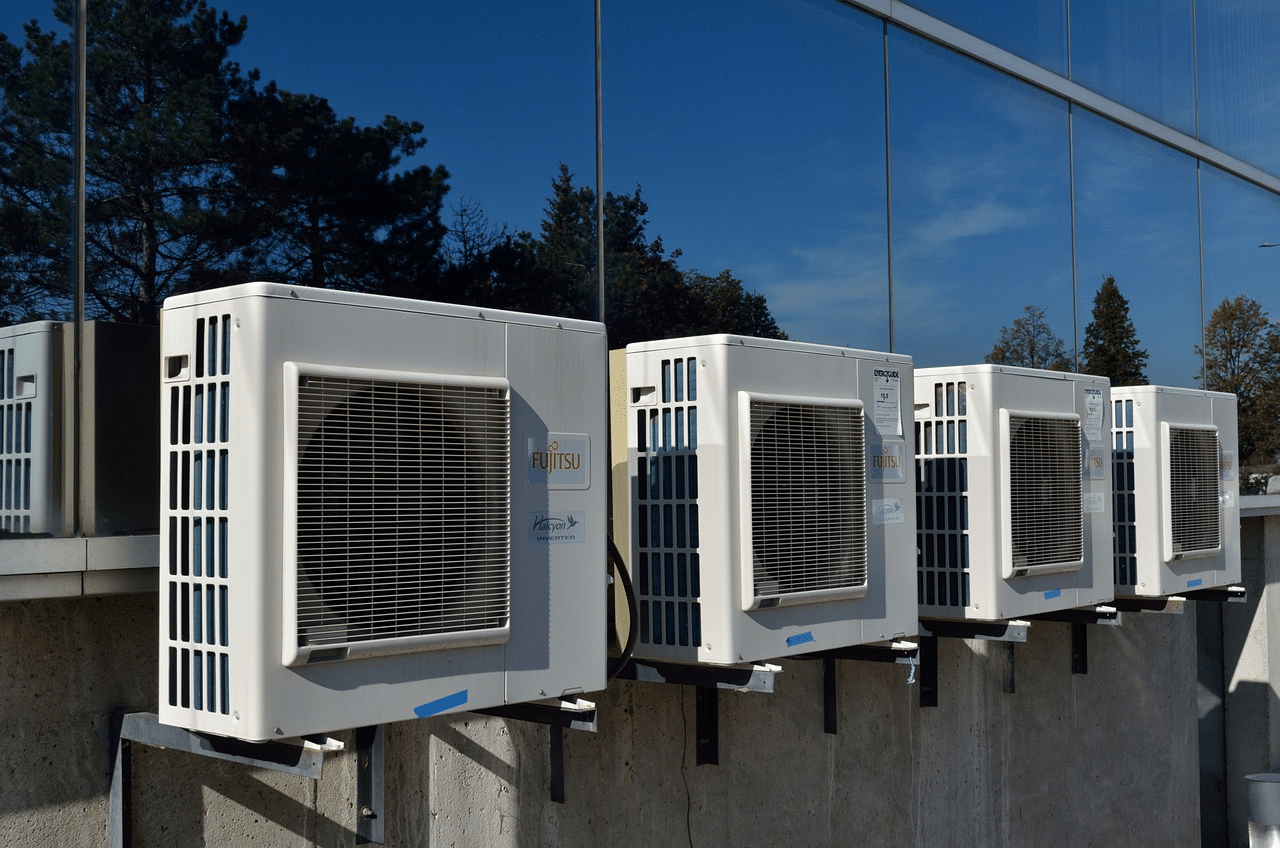Making the Right Choice: Electric vs. Gas Water Heaters
Picking the right water heater for your home can feel like solving a complex puzzle.
With electric and gas options available, each with pros and cons, it’s no wonder many homeowners are indecisive.
You might wonder which type will save you money in the long run or which is better for the environment.
Fear not – we’re here to simplify this choice for you.
This guide will transform your water heater dilemma into a clear-cut decision.
We’ll walk you through a detailed comparison of electric and gas water heaters.
You’ll learn about their upfront costs, long-term expenses, energy efficiency, installation processes, and overall performance.
When you finish reading, you’ll know to select the water heater that best suits your household’s needs and values.
Let’s get started!
Electric vs. Gas Water Heaters
When it comes to keeping your home supplied with hot water, you have a choice between electric and gas water heaters.
Both types have advantages and drawbacks; understanding these can help you make an informed decision that best suits your needs.
Let’s learn about these water heaters first.
What is an Electric Water Heater?
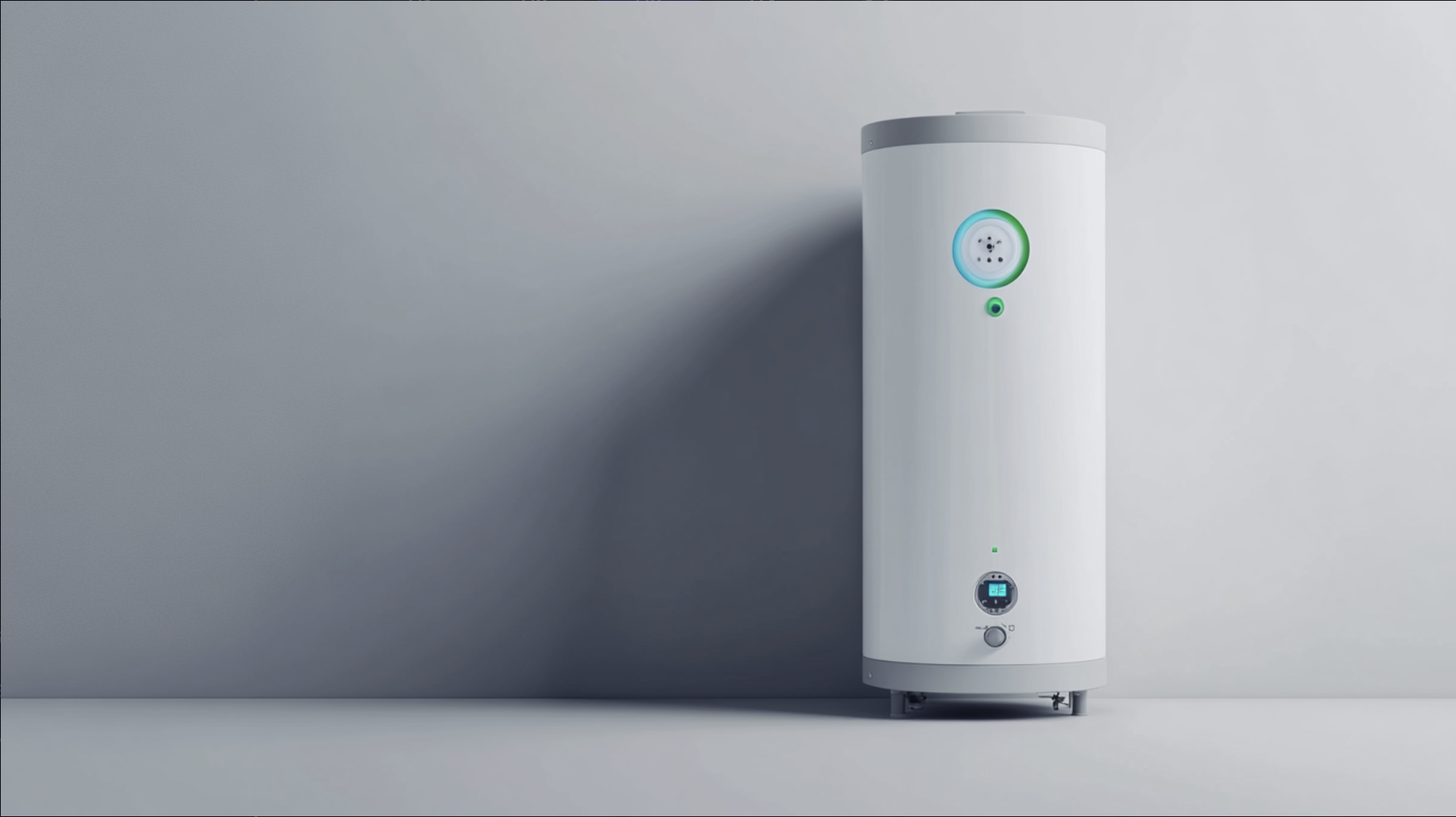
Electric water heaters use electrical energy to heat water for residential or commercial use.
They are widely used for their ease of installation, safety, and availability in various sizes and models.
Electric water heaters use high-voltage electric heating elements to warm up water stored in a tank.
Available in both tank and tankless models.
Pros
- Clean operation: No fuel burning or emissions
- Safe: No gas leak or carbon monoxide risks
- Efficient heating: Direct heat transfer
- Purchase price: Lower upfront cost
- Easier to install: No gas lines or venting needed
- Longer lifespan: Often 2-3 years more than gas models
Cons
- Higher operating costs: Electricity is often more expensive, leading to higher monthly bills.
- Slower heating rate: Electric heaters typically take longer to heat water compared to gas models.
- Ineffective during power outages: If the power goes out, you’ll be left without hot water.
Best For
Homes without gas lines, safety-conscious households, and those looking for lower upfront costs.
It is ideal for smaller households with lower hot water demands or areas with relatively low electricity costs.
What is a Gas Water Heater?
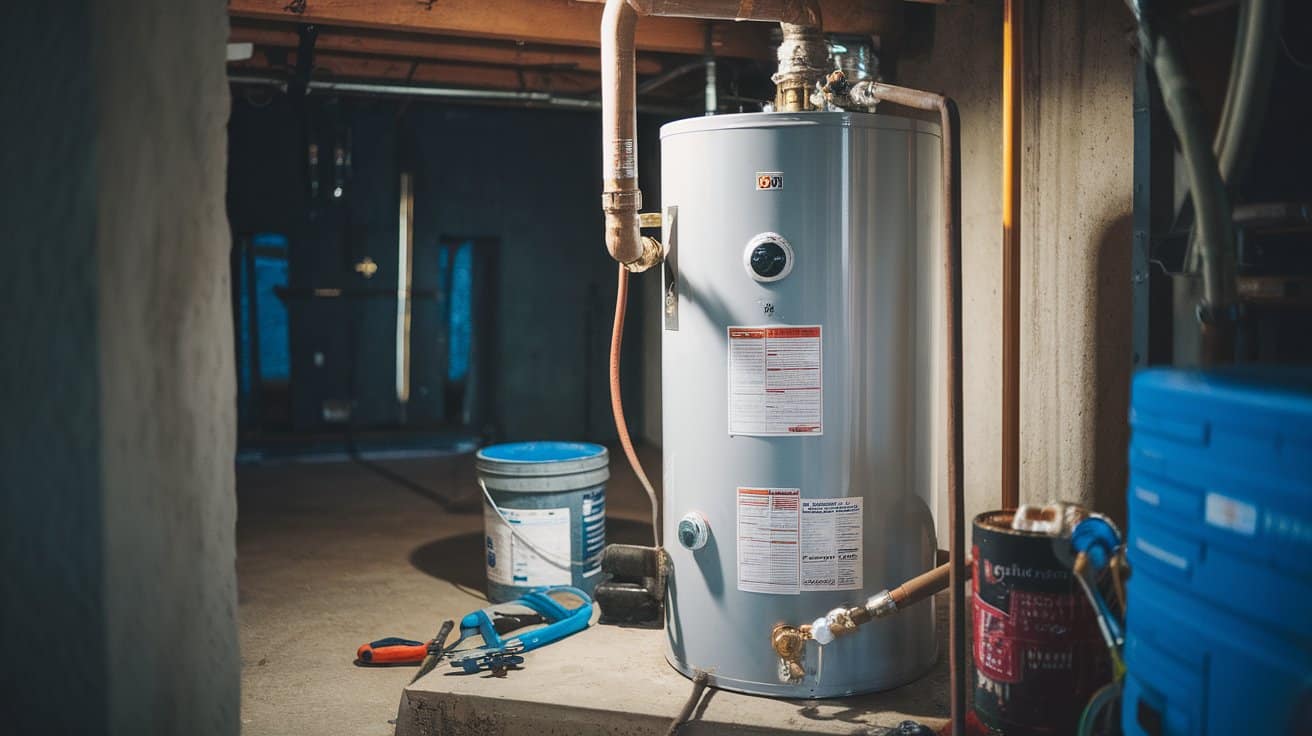
Gas water heaters use a gas-fired burner at the bottom of the tank to heat water.
They are known for their efficiency in quickly heating large volumes of water and are often favored in homes with high hot water demands.
As the burner warms the water, it rises to the top of the tank, ready for use throughout your home.
Available in both tank and tankless models.
Pros
- Quick heating: Gas burners heat water faster than electric models.
- Cost-effective: Natural gas is often cheaper than electricity, lowering energy bills.
- Works in outages: Provides hot water even during power cuts.
- Handles high demand: Efficient at heating large amounts of water quickly.
Cons
- Safety risks: Rare but serious gas leak hazards. Carbon monoxide detectors needed.
- Installation costs: Expensive if gas line not present.
- Maintenance: More complex parts mean more upkeep and potential repairs.
- Lifespan: 8-12 years, shorter than electric models due to combustion wear.
Best For
Homes with existing gas lines, larger families, and areas prone to power outages.
Suitable for households with high hot water demands.
Which One Is Best: Electric and Gas Water Heaters?

When deciding between electric and gas water heaters, several key factors come into play.
These parameters will help you determine which type is best suited for your specific needs and circumstances.
Let’s explore the crucial aspects you should consider to make an informed choice.
1. Cost Analysis
When it comes to choosing between electric and gas water heaters, understanding the full financial picture is crucial.
This cost analysis will break down both the upfront expenses and long-term operating costs, helping you make an informed decision that aligns with your budget and needs.
Purchase and Installation Costs
Electric Water Heaters
- Electric water heaters typically have a lower initial cost, both in terms of the unit itself and installation.
- The purchase price for an electric water heater usually ranges from $500 to $800.
- Installation is generally straightforward and less expensive because every home already has an electrical connection.
- You can expect to pay between $500 and $1,000 for installation, bringing the total initial investment to around $1,000 to $1,800.
- This lower upfront cost makes electric water heaters an attractive option for those on a tighter budget or looking to minimize initial expenses.
Gas Water Heaters
- Gas water heaters, while often more expensive upfront, can offer long-term savings.
- The purchase cost for a gas water heater typically falls between $600 and $1,000.
- However, the installation costs are significantly higher, ranging from $1,000 to $2,500.
- This higher cost is due to the need for a gas line connection and proper ventilation system.
- If your home doesn’t already have a gas line, the installation costs could be even higher.
- The total initial investment for a gas water heater usually ranges from $1,600 to $3,500.
- While this higher upfront cost can be a deterrent, it’s important to consider the long-term operating costs when making your decision.
Operating Costs
Electric Water Heaters
- Electric water heaters generally have higher operating costs due to the price of electricity.
- On average, you can expect to pay around $42 per month to run an electric water heater.
- Over a 10-year period, this adds up to approximately $5,040 in operating costs.
- These higher long-term costs can offset the initial savings from the lower purchase and installation prices.
- However, the exact costs can vary depending on your local electricity rates and usage patterns.
Gas Water Heaters
- Gas water heaters typically have lower monthly operating costs, averaging about $30 per month.
- Over a 10-year period, this totals around $3,600 in operating costs.
- This lower long-term expense can make gas water heaters more economical in the long run, despite their higher upfront costs.
- However, it’s important to note that gas prices can fluctuate, which could affect your monthly expenses.
- Additionally, your actual costs will depend on local gas prices and your household’s hot water usage.
By carefully considering both the upfront costs and long-term operating expenses, you can make a more informed decision about which type of water heater will be most cost-effective for your specific situation.
Remember to factor in your local energy prices, expected usage, and how long you plan to stay in your current home when making your choice.
2. Safety Considerations
When choosing between electric and gas water heaters, safety is a critical factor to consider.
Both types have distinct safety profiles that can significantly impact your decision.
Electric Water Heaters
Electric water heaters are generally considered the safer option.
They operate without combustible fuel, eliminating risks associated with gas appliances.
The main safety advantages include:
- No risk of gas leaks or carbon monoxide poisoning
- No need for ventilation systems, reducing installation complexities
- Lower risk of fire or explosion
However, electric water heaters aren’t entirely risk-free.
Potential safety concerns include:
- Risk of electric shock if not properly grounded
- Possibility of scalding if the thermostat is set too high
To ensure safe operation, have the unit installed by a qualified professional and conduct regular maintenance checks.
Gas Water Heaters
Gas water heaters, while efficient, come with higher safety risks.
The primary concerns include:
- Potential for gas leaks, which can lead to fire or explosion hazards
- Risk of carbon monoxide poisoning if not properly vented
- Requirement for proper ventilation to remove combustion gases
To mitigate these risks:
- Install carbon monoxide detectors in homes with gas water heaters
- Ensure proper ventilation during installation
- Schedule regular maintenance by a qualified technician
Despite these risks, gas water heaters can be operated safely with proper precautions.
Many households use them without incident for years.
When making your decision, consider your comfort level with managing these safety considerations.
If you’re uncomfortable with gas appliances or live in an area where professional maintenance isn’t readily available, an electric water heater might be the safer choice.
Regardless of your choice, proper installation by a licensed professional and regular maintenance are crucial for safe operation.
Understanding these safety profiles will help you balance your hot water needs with your safety priorities.
3. Energy Efficiency and Environmental Impact
When considering energy efficiency and environmental impact, electric and gas water heaters each have their own advantages and drawbacks.
Understanding these differences can help you make a choice that aligns with your energy-saving goals and environmental concerns.
Electric Water Heaters
- Electric water heaters are generally more energy-efficient, with energy factors (EF) typically ranging from 0.90 to 0.95.
- This means that 90-95% of the electricity used is converted directly into heat for the water, resulting in minimal heat loss.
- One of the biggest advantages of electric water heaters is their potential to use renewable energy sources.
- If your home has solar panels or you have access to green energy from your utility provider, you can power your water heater with clean electricity, significantly reducing your carbon footprint.
- Electric models also benefit from better insulation technology, helping to maintain water temperature with less energy input over time.
- Some advanced models even come with smart features that optimize heating based on your household’s usage patterns.
- However, the environmental impact of electric water heaters largely depends on how electricity is generated in your area.
- If your local grid relies heavily on fossil fuels, the indirect emissions could be substantial.
Gas Water Heaters
- Gas water heaters typically have a lower energy factor, usually ranging from 0.60 to 0.70.
- This means that 60-70% of the energy from the gas is converted into heat for the water, with the rest lost through venting.
- Despite this lower efficiency, gas water heaters often have lower operating costs due to the generally lower price of natural gas compared to electricity.
- They also heat water more quickly than electric models, which can be beneficial for households with high hot water demand.
- From an environmental perspective, gas water heaters directly emit greenhouse gases through the combustion of natural gas.
- While natural gas is often considered a cleaner fossil fuel compared to coal or oil, it still contributes to carbon emissions.
- Newer gas water heater models, particularly condensing units, have improved efficiency by capturing and using heat from exhaust gases that would otherwise be lost.
In conclusion, electric water heaters generally offer higher energy efficiency and the potential for renewable energy use, making them more environmentally friendly in many cases.
However, gas water heaters can be more efficient in terms of heating speed and may have a lower environmental impact in areas where electricity is primarily generated from fossil fuels.
Your choice should depend on your specific circumstances, including access to renewable energy, local energy prices, and personal environmental priorities.
4. Lifespan and Maintenance
When choosing between electric and gas water heaters, it’s important to consider their longevity and upkeep requirements.
These factors can significantly impact your long-term satisfaction and costs.
Electric Water Heaters
Electric water heaters are known for their durability and low maintenance needs.
These units typically last between 10 to 15 years, thanks to their simpler design with fewer moving parts.
Maintenance for electric water heaters is relatively straightforward. The main tasks include:
- Annual flushing to remove sediment buildup
- Checking the anode rod every few years
- Occasional replacement of heating elements or thermostats
Many homeowners find these maintenance tasks manageable to do themselves, although professional service is always an option for those who prefer it.
Gas Water Heaters
Gas water heaters generally have a shorter lifespan, averaging 8 to 12 years.
This is due to their more complex system and the effects of the combustion process over time.
Maintenance for gas water heaters is more involved and typically includes:
- Annual flushing, similar to electric models
- Regular checks of the gas line, burner, and venting system
- Cleaning or replacement of the pilot light and thermocouple
- Annual inspection and cleaning of the burner
Due to the potential safety risks associated with gas appliances, it’s often recommended to have a professional perform annual maintenance on gas water heaters.
While gas water heaters require more frequent and complex maintenance, many homeowners find that the lower operating costs offset these additional expenses.
When making your decision, consider your comfort level with maintenance tasks and your ability to budget for regular professional service.
Proper maintenance, regardless of the type you choose, is key to maximizing the lifespan and efficiency of your water heater.
Recommendations from Experts
Consider your specific needs and circumstances when choosing between electric and gas water heaters.
Here’s a concise guide to help you decide:
1. Choose an Electric Water Heater
Electric water heaters are ideal if you’re working with a tight budget or prioritizing safety.
They typically cost less upfront, with purchase prices ranging from $500 to $800 and installation costs between $500 and $1,000.
Electric models eliminate risks associated with gas leaks or carbon monoxide emissions, making them a safer choice for many households.
2. Choose a Gas Water Heater
If your household has high hot water demands or you’re focusing on long-term savings, consider a gas water heater.
While they have higher upfront costs ($600 to $1,000 for the unit, $1,000 to $2,500 for installation), gas heaters generally have lower monthly operating costs – about $30 compared to $42 for electric models.
They also heat water faster, making them suitable for larger families or homes with multiple bathrooms.
3. Choose to Save the Environment
Electric water heaters are often the more environmentally friendly choice, especially when paired with renewable energy sources like solar panels.
They produce no direct emissions in your home and can become increasingly eco-friendly as the electrical grid incorporates more renewable energy sources.
Remember, the best choice depends on factors like local energy prices, climate, home size, and your personal priorities.
Consider consulting a professional for advice tailored to your specific situation.
Conclusion
Choosing between electric and gas water heaters doesn’t have to be complicated. By understanding their key differences, you can make an informed decision that fits your home and budget.
Electric water heaters offer lower upfront costs and enhanced safety, ideal for budget-conscious homeowners.
Gas water heaters excel in high-demand households and areas with lower gas prices, providing long-term savings despite higher initial costs.
For the environmentally conscious, electric models, especially when paired with renewable energy, are the clear winners.
Remember, the best choice depends on your specific needs. Consider factors like local energy prices, household size, and long-term plans.
Don’t hesitate to consult a professional for personalized advice. Ready to upgrade your water heating?
Explore our recommended options or schedule a consultation with a local expert today. Your perfect water heater is just a decision away!

